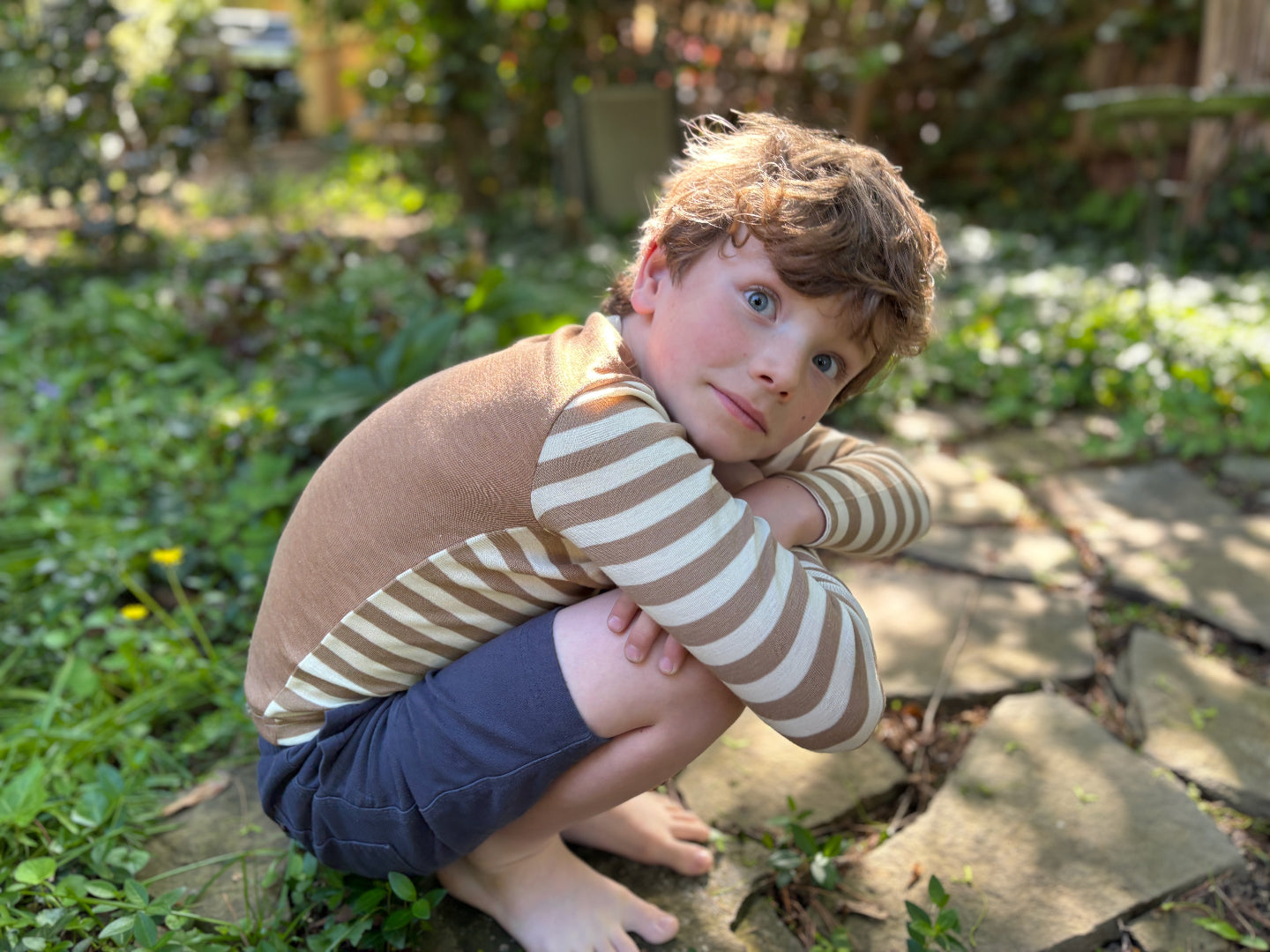It's never too early to start camping with your kids! At any age they find so many things to captivate them on a camping trip: cool critters, a star-filled sky, owls hooting, ghost stories in the dark, cooking over an open fire..! Camping can open kids' eyes and awaken their senses—not to mention stimulate their brains!—as they learn valuable hands-on skills, responsibility and a bit of independence.
A recent trip to an outdoor rec store reminded us of how plastics are so prevalent in all the gear, not to mention a slew of chemicals such as PFAS, flame retardants, respiration affecting VOCs, and antimicrobial treatments… While the initial introductions of these materials was done with good intentions (“better performance,” “product innovation,” and even "safety"), we now know that the significant harm to human health (and organisms and ecosystems everywhere) far outweighs the benefits.
So where do we go from here? The good news is that there are small brands out there intent on doing things differently (like us!). And we are seeing some of the bigger brands also taking steps to phase out the use of harmful chemicals (albeit still using too much plastic). Here are some recommendations for camping essentials, drawing on the research we’ve done:
Baselayers: Layering is key when it comes to outdoor outfitting and great baselayers are the foundation. Bigelow Lane base layers are made of a wool/silk blend that is naturally breathable, quick-drying, and unbeatably soft against the skin. These layers help regulate your body temperature, keeping you warm when it’s cold and cool when it’s hot, making them perfect for year-round use.
Sleeping bags: We've been on the hunt for a sleeping bag made without harmful synthetics and toxic microfibers, and we are so happy to have found Lucky Sheep! They are not cheap, but they are exceptional and, we would argue, well worth the price. They’re warm, lightweight, and made ethically in North Carolina out of the best natural fabric: wool! And, they even pack down to fit in a backpack!
Backpacks: Check out these backpacks, made of singularly tough industrial hemp, which is also naturally anti-bacterial and needs no fertilizers and nearly no water to grow. These backpacks are OEKO-TEK certified, meaning they do not contain any harmful chemicals — including their waterproof coatings, which are PFAS-free.
Tents: We found some swoonworthy, truly heirloom, lightweight natural canvas tents. But for those of us who can’t swing $1500+ for a tent, we recommend the Nemo Osmo tents, which are unique among tents in offering a PFAS-free hydrophobic coating. And while made of synthetic polyester and nylon composite, the materials are 100% recycled!
Bug spray: We’ve long shunned DEET in bug spray, given its reputation for toxicity, but we were swayed by this article by the health watchdog Environmental Working Group that cited studies debunking claims that DEET was harmful to human health. The CDC has stated that there are increasing risks of pest-borne illnesses in the U.S. and EWG urges consumers to use (as directed) bug protection with DEET, Picaridin, or IR3535 in order to reduce a person’s risk from life-altering diseases.
We hope some of this info is helpful in planning your first (or next) overnight family camping trip. *Non-pro tip: consider a practice run — pitch a tent in the backyard or living room:)
xo,
Alex & Emmanuelle


